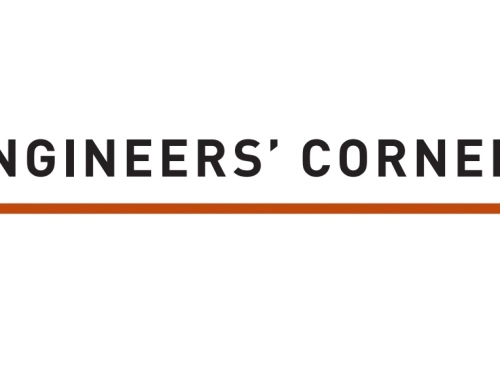MONTREAL, Nov. 23, 2020 / CNW Telbec / – Alongside the Relançons Montréal – Strategic Forum on Construction and Infrastructures event held today by videoconference, industry players gathered within of the Forum for Strategic Initiatives in the Construction Industry (FISIC), recalled that all is not acquired as regards the revival of the sector.
Even though companies in the construction sector are on the right track to fully contribute to the recovery of the economy, FISIC members warn the various levels of government of the irritants that could hamper recovery efforts while proposing short-term solutions.
Prompt Payment period
Access to liquidity is fundamental to recovery, according to FISIC members. At the moment, companies in the sector, mainly SMEs, are struggling to get paid by public contractors within a reasonable timeframe, thus depriving them of liquidity allowing them, among other things, to bid on new projects or to pay. their service and material suppliers.
Gathered within FISIC, all players in the construction production chain, including professional service companies, general contractors, specialized contractors, service providers, material retailers, distributors and manufacturers, get along to denounce this phenomenon which undermines the confidence of companies in public contractors and which undermines competition in the construction industry.
In a context where Quebec businesses need more than ever to have access to their liquidity to ensure their survival, the members of FISIC believe that the government must act without further delay.
In this sense, the members of FISIC invite the government of Quebec to draw inspiration from other jurisdictions, such as the United States, the United Kingdom, the European Union, and, closer to home Canada, the Ontario and several other Canadian provinces, to table, without further delay, a bill to pay construction companies within a reasonable timeframe and to discuss appropriate solutions with professional associations. This bill should apply to the entire public sector, including state corporations and municipalities, and even to the private sector.
Lack of construction labor
While the recovery of the construction sector is well underway, notably thanks to public investment, the construction industry is grappling with an unprecedented shortage of manpower.
In fact, the Commission de la construction du Québec (CCQ) estimates the number of lacking workers at 13,000 over the next 5 years. The Association de la construction du Québec (ACQ) mentions that more than 20,000 workers will be lacking on construction sites over the next 10 years in Quebec, including more than 15,000 workers in the metropolitan area alone. In addition, in a survey presented at its 2019 convention, members of the Association of road builders and major works of Quebec (ACRGTQ) responded in more than 75% of cases, having unmet needs in terms of labor. -work subject to the industrial labor relations regime. This percentage reached over 90% for the non-subject workforce.
While the government wants the acceleration of several public infrastructure projects, it becomes more than necessary to take the means to remedy the situation.
This is why the members of FISIC support the 8 regulatory changes proposed by the CCQ, including the one which makes it possible in particular to recognize the acquired knowledge and skills of workers in related fields or immigrants with experience in the construction field elsewhere in the world.
According to FISIC members, the solutions proposed by the CCQ must be implemented as quickly as possible, otherwise the workforce problems risk worsening in the coming months.
Administrative burden
The administrative burden has been shown time and again to significantly affect the productivity of the construction industry. This is even more true for small businesses (5 employees and less) which represent nearly 85% of all businesses in the construction industry in Quebec.
Moreover, the Government of Quebec has been making significant efforts for several years to reduce the administrative and regulatory burden on businesses. The construction sector was recently consulted for this purpose and the results of this consultation are eagerly awaited.
However, not all levels of government are involved in such a process. For example, the City of Montreal has been identified many times as a place where administrative and regulatory red tape systematically disrupts construction projects.
For the members of FISIC, the City of Montreal would have everything to gain if it undertook a process similar to that of the Government of Quebec by adopting, in particular, a policy of regulatory and administrative relief.
About the Strategic Initiatives Forum for the Construction Industry (FISIC)
FISIC is a grouping of associations of employers in construction that mobilizes companies and other stakeholders in the construction ecosystem by facilitating collaboration and complementarity between stakeholders. It seeks to act on the cross-cutting opportunities and challenges of the industry in order to improve the competitiveness of the sector, in particular with regard to productivity, innovation, influence, collaborative culture and sustainability. FISIC aims for a more efficient, innovative and collaborative construction industry, for the benefit of clients.
Signatory members of the Forum for Strategic Initiatives in the Construction Industry:
Association des Architectes en pratique privée du Québec (AAPPQ), Association béton Québec (ABQ), Association de la construction du Québec (ACQ), Association des constructeurs de routes et grands travaux du Québec (ACRGTQ), Association des entrepreneurs en coffrage structural du Québec (AECSQ), Association des firmes de génie-conseil Québec (AFG), Association des Maîtres Couvreurs du Québec (AMCQ), Association des entrepreneurs en maçonnerie du Québec (AEMQ), Association des entrepreneurs en revêtements muraux du Québec (AERMQ), Association des professionnels de la construction et de l’habitation du Québec (APCHQ), Association d’isolation du Québec (AIQ), Association québécoise de la quincaillerie et des matériaux de construction (AQMAT), Association Québécoise des Entrepreneurs en Infrastructure (AQEI), Association patronale des entreprises en construction du Québec (APECQ), Association de vitrerie et fenestration du Québec (AVFQ), Corporation des entreprises de traitement de l’air et du froid (CETAF), Corporation des entrepreneurs généraux du Québec (CEGQ), Corporation des Maîtres Entrepreneurs en Installations contre l’Incendie (CMEICI), Corporation des maîtres électriciens du Québec (CMEQ), Corporation des maîtres mécaniciens en tuyauterie du Québec (CMMTQ), Conseil du patronat du Québec (CPQ), Fédération québécoise des associations d’entrepreneurs spécialisés en construction (FQAESC), Regroupement des Entrepreneurs en Coffrage du Québec (RECQ), Association Provinciale des Entrepreneurs en Systèmes Intérieurs du Québec (APESIQ) et L’Institut canadien de la construction en acier (ICCA).
SOURCE :Association de la construction du Québec










